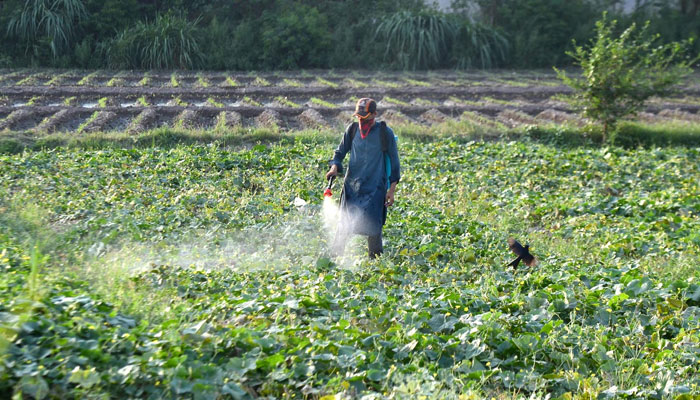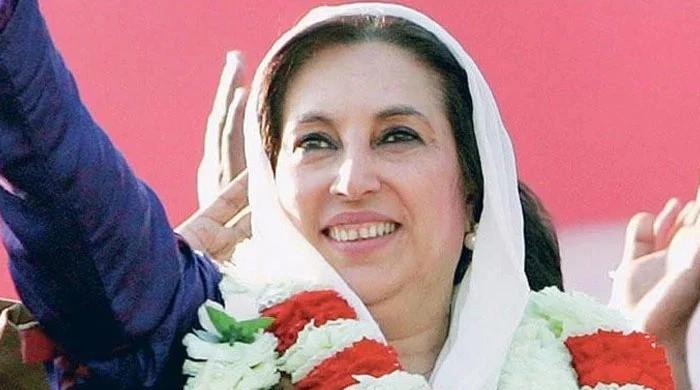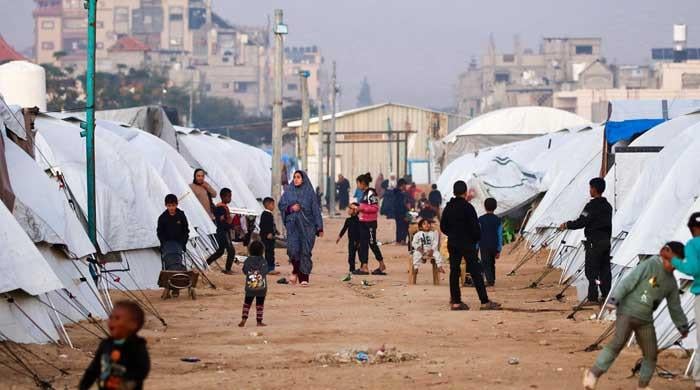Expectations from COP-28 for restructuring the food system of Pakistan
A sustainable food system is not achieved in the presence of climate stress
January 06, 2024

Food and agricultural systems are experiencing rapid changes globally. The widespread restructuring of the food system is not limited to food production. The alteration of food and farming practices is a worldwide phenomenon that transcends the manufacturing industry and encompasses various interrelated components of the supply chain.
Various factors influence the continuous transformation of food and farming practices. The movement of food products, agricultural inputs, and technology across borders affects the production, distribution, or consumption of foods. To boost productivity and decrease the climate variation effect on foods, new agricultural technologies like precision agriculture, genetic engineering, renewable and regenerative agriculture, and data analytics are altering the way we do farming.
Urban areas are experiencing a rise in the variety of foods due to the migration of people, and changes in lifestyle and eating habits. Greenhouse gas (GHG) emissions are a significant factor in environmental damage caused by the current food system. Agriculture uses up to 70% of the world's freshwater, resulting in deforestation and loss of biodiversity as well as land degradation and pollution.
United Nations Emissions Gap Report (2023) postulated that there is going to be a temperature rise between 2.5°C and 2.9°C by the turn of the century. Even though Pakistan only contributes 0.9% to the world's GHG. Climate change affects the variety of foods with higher nutritional value. The nutrient imbalance exacerbates the growth of several hungry, malnourished, overweight and obese people.
Hence, the current system has many challenges in the context of climate and nutrition security. The resultant changes to the food system necessitate a comprehensive, collaborative and logical effort among governments, businesses, farmers, researchers, and consumers to cope with the multifaceted change.
A sustainable food system is not achieved in the presence of climate stress. Pakistan has taken several initiatives to address these issues. The country has launched several projects aimed at reducing greenhouse gas emissions, promoting renewable energy sources, and increasing forest cover. Pakistan has marked a goal of producing 60% of electricity from renewable sources by 2030.
The government has also introduced policies to promote electric vehicles and reduce carbon emissions from the transport sector. Building resilience and mitigating the effects of the climate crisis need investment from the global community i.e. developed countries, policymakers, financial institutions, development partners and civil society.
The 28th Conference of the Parties (COP28) held from November 30 to December 12, 2023, in Dubai, was a key opportunity for the global community to engage with and invest in the developing countries facing the challenges of the climate crisis. Pakistan, one of the world's most affected countries by climate change, had been actively working to extract compensation from wealthy nations.
COP28 brought together leaders from governments, businesses, NGOs, and civil society from across the globe. A remarkable decision of COP27 was to create a fund for responding to loss and damage resulting from climate change. Logically, it is the principle of “polluter pays” which should be applicable here. Countries like the US have a cumulative CO2 emission of 25% of the global emissions and the corresponding figures for the EU and China are 22% and 12.7%, respectively. The Loss and Damage Fund recognises these injustices and aims to help developing nations deal with the unavoidable impacts of climate change.
The Adaptation Gap Report (AGR) for 2023 indicates a decrease in progress across three critical aspects of adaptation, which are financing, planning, and implementation. The developing countries estimated the updated adaptation cost to be US$215 billion to US$387 billion per year during this decade and are expected to increase significantly by 2050.
Research shows that a billion invested in coastal flooding leads to a $14 billion decrease in economic losses. If we invest $16 billion every year in agriculture, it is estimated that starvation or chronic hunger caused by climate effects could save approximately 78 million people from facing hunger.
The COP28 participants (156 heads of state and g, 22 international leaders, and 784 ministers) were engaged in hundreds of events, discussions, and pledging conferences to build momentum to unite, act, and deliver. They reached a consensus to accelerate climate action. The major takeaways from COP28 are given below:
- COP28 taught us about resilience in the face of challenges. While climate change poses a complex threat, the resilience displayed by nations and communities demonstrates the indomitable human spirit.
- At COP28 countries have agreed on targets to triple renewable power generation. A new global roadmap has been introduced by FAO to focus on sustainable food systems while accommodating a growing population.
- Several environmental organisations emphasised the need for rich countries to provide billions of dollars rather than millions to countries struggling with financial losses triggered by severe weather conditions.
- The COP28 climate summit outlined various measures that countries can adopt to achieve net-zero GHG by 2050. It was endorsed by nearly 200 countries.
- With the high concentration of greenhouse gases, methane has the potential to accelerate global warming more than CO2 or other greenhouse gases combined. The oil and gas sector with 50 oil companies endorsed reducing methane emissions to nearly equal to zero in 2030.
Moving away from fossil fuels is a capital-intensive process and developing countries are not able to fund such activities. Hence, there is a need for the developed world to transfer not only finance but also technology. The loss and damage fund provides a mechanism for industrial powers to transfer disaster recovery aid to developing nations. There are many interpretations of the outcomes of COP28. Some considered it more like a symbolic concession than real action.
In conclusion, the previous trends of climate in Pakistan advocate for changes in agricultural practices, reduction of food waste, promotion of local food systems, practice of smart agriculture, adoption of plant-based diets and much more.
Pakistan needs financial support to effectively counteract the consequences of climate change and create a more resilient and sustainable future. Without this support, the nation may encounter big challenges in defending its citizens' welfare and coping with climate change. Without financial assistance, Pakistan will not be able to execute the climate adaptation plan required to deal with these challenges.
To ensure an environmentally sustainable, socially just and economically viable Pakistan, we have to confirm that everyone has access to safe, nutritious and accessible food. If we fail to restructure our food system and preserve natural resources and biodiversity, it may have negative consequences for future generations.
Prof Dr Anwaar Ahmed is a Sector Specialist Agriculture, Food and Nutrition, Ministry of Planning Development and Special Initiatives Islamabad Pakistan. He can be reached at [email protected].









